
Robert Brent "Bob" Thirsk, is a Canadian retired engineer and physician, and a former Canadian Space Agency astronaut. He holds the Canadian record for the most time spent in space. He became an officer of the Order of Canada (OC) in 2013 and was named to the Order of British Columbia (OBC) in 2012.

Dafydd "David" Rhys Williams is a Canadian physician, public speaker, author and retired CSA astronaut. Williams was a mission specialist on two Space Shuttle missions. His first spaceflight, STS-90 in 1998, was a 16-day mission aboard Space Shuttle Columbia dedicated to neuroscience research. His second flight, STS-118 in August 2007, was flown by Space Shuttle Endeavour to the International Space Station. During that mission he performed three spacewalks, becoming the third Canadian to perform a spacewalk and setting a Canadian record for total number of spacewalks. These spacewalks combined for a total duration of 17 hours and 47 minutes.

James Philip Bagian, MD, PE, is an American physician, engineer, and former NASA astronaut of Armenian descent. During his career as an astronaut, he logged 337 hours of space-flight, over two missions, STS-29 and STS-40. After leaving NASA in 1995, Bagian was elected as a member of the Institute of Medicine. He was also elected as member into the National Academy of Engineering in 2000 for the integration of engineering and medical knowledge in applications to aerospace systems, environmental technology, and patient safety.

Bernard Anthony Harris Jr. is a former NASA astronaut. On February 9, 1995, Harris became the first African American to perform an extra-vehicular activity (spacewalk), during the second of his two Space Shuttle flights.

The Columbia University College of Physicians and Surgeons is the medical school of Columbia University, located at the Columbia University Irving Medical Center in the Washington Heights neighborhood of Manhattan.

Uniformed Services University of the Health Sciences (USU) is a health science university of the U.S. federal government. The primary mission of the school is to prepare graduates for service to the U.S. at home and abroad as uniformed health professionals, scientists and leaders; by conducting cutting-edge, military-relevant research; by leading the Military Health System in key functional and intellectual areas; and by providing operational support to units around the world.
The Doctorate of Medicine and of Philosophy (MD–PhD) is a dual doctoral degree for physician–scientists, combining the professional training of the Doctor of Medicine degree with the research expertise of the Doctor of Philosophy degree; the Ph.D. is the most advanced credential in the United States. Other dual degree programs exist, such as the joint MD–JD degree; both the JD professional degree and the MD are not universally recognized internationally, however. The National Institutes of Health currently provides 50 medical schools with Medical Scientist Training Program grants that support the training of students in MD–PhD programs at these institutions through tuition and stipend allowances. These programs are often competitive, with some admitting as few as two students per academic year. The MCAT score and GPA of MD–PhD matriculants are often higher than MD only matriculants.
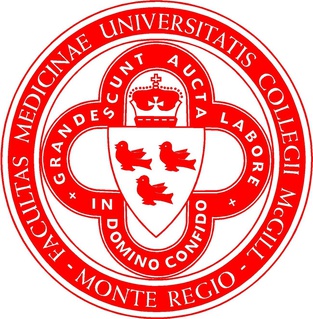
The Faculty of Medicine and Health Sciences is one of the constituent faculties of McGill University. It was established in 1829 after the Montreal Medical Institution was incorporated into McGill College as the college's first faculty; it was the first medical faculty to be established in Canada. The Faculty awarded McGill's first degree, and Canada's first medical degree to William Leslie Logie in 1833.
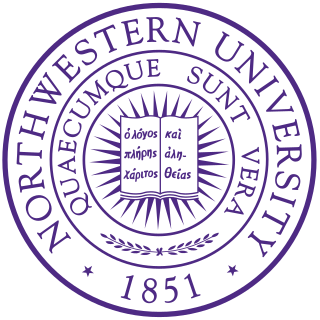
Northwestern University Feinberg School of Medicine is the medical school of Northwestern University and is located in the Streeterville neighborhood of Chicago, Illinois. Founded in 1859, Feinberg offers a full-time Doctor of Medicine degree program, multiple dual degree programs, graduate medical education, and continuing medical education.

The Joan & Sanford I. Weill Medical College of Cornell University is Cornell University's biomedical research unit and medical school in New York City. It is affiliated with NewYork-Presbyterian Hospital, Weill Cornell Medical Center, Hospital for Special Surgery, Memorial Sloan Kettering Cancer Center, and Rockefeller University, all of which are located on or near York Avenue and Sutton Place.
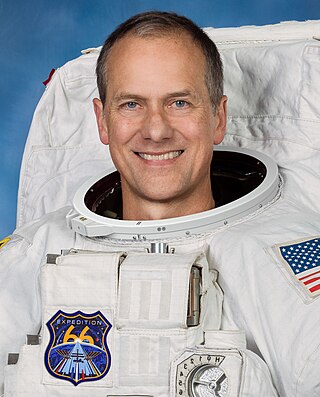
Thomas Henry Marshburn is an American physician and a former NASA astronaut. He is a veteran of three spaceflights to the International Space Station and holds the record for the oldest person to perform a spacewalk at 61 years old.

Michael Reed Barratt is an American physician and a NASA astronaut. Specializing in aerospace medicine, he served as a flight surgeon for NASA before his selection as an astronaut, and has played a role in developing NASA's space medicine programs for both the Shuttle-Mir Program and International Space Station. His first spaceflight was a long-duration mission to the International Space Station, as a flight engineer in the Expedition 19 and 20 crew. In March 2011, Barratt completed his second spaceflight as a crew member of STS-133. Barratt will pilot the SpaceX Crew-8 mission in spring 2024.
The University of Cincinnati Academic Health Center (AHC) is a collection of health colleges and institutions of the University of Cincinnati, Cincinnati, Ohio. It trains health care professionals and provides research and patient care. AHC has strong ties to UC Health, which includes the University of Cincinnati Medical Center and West Chester Hospital.

Michael Lesch was a Jewish American physician and medical educator who helped identify an important genetic disorder associated with retardation and self-mutilation. This disease is now known as the Lesch–Nyhan syndrome. In the mid-1960s when the syndrome was discovered, Lesch was a research associate working at the Laboratory of General and Comparative Biochemistry at the NIH National Institute of Mental Health in Bethesda, Maryland. William Nyhan, a pediatrician and biochemical geneticist, was his mentor. Lesch was 30 years old when he discovered the disease.
Edward ("Ted") Hance Shortliffe is a Canadian-born American biomedical informatician, physician, and computer scientist. Shortliffe is a pioneer in the use of artificial intelligence in medicine. He was the principal developer of the clinical expert system MYCIN, one of the first rule-based artificial intelligence expert systems, which obtained clinical data interactively from a physician user and was used to diagnose and recommend treatment for severe infections. While never used in practice, its performance was shown to be comparable to and sometimes more accurate than that of Stanford infectious disease faculty. This spurred the development of a wide range of activity in the development of rule-based expert systems, knowledge representation, belief nets and other areas, and its design greatly influenced the subsequent development of computing in medicine.

Gerald D. Fischbach is an American neuroscientist. He received his M.D. from the Weill Cornell Medical College of Cornell University in 1965 before beginning his research career at the National Institutes of Health in 1966, where his research focused on the mechanisms of neuromuscular junctions. After his tenure at the National Institutes of Health, Fischbach was a professor at Harvard University Medical School from 1972 to 1981 and from 1990 to 1998 and the Washington University School of Medicine from 1981 to 1990. In 1998, he was named the director of the National Institute of Neurological Disorders and Stroke before becoming the Vice President and Dean of the Health and Biomedical Sciences, the Dean of the Faculty of Medicine, and the Dean of the Faculty of Health Sciences at Columbia University from 2001 to 2006. Gerald Fischbach currently serves as the scientific director overseeing the Simons Foundation Autism Research Initiative. Throughout Fischbach's career, much of his research has focused on the formation and function of the neuromuscular junction, which stemmed from his innovative use of cell culture to study synaptic mechanisms.
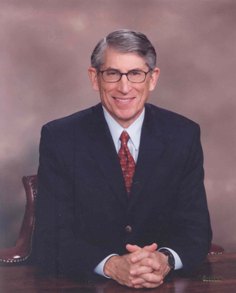
Lawrence H. Cohn, was an American-born pioneering cardiac surgeon, researcher, and medical educator. He had been on the surgical staff at Harvard Medical School since 1971 and had been a Professor of Surgery at Harvard Medical School since 1980. In 2000, he was awarded the first endowed Chair in Cardiac Surgery at Harvard Medical School.

Josef F. Schmid is a German-American physician, NASA flight surgeon and a major general in the United States Air Force Reserves. He served as an aquanaut on the joint NASA-NOAA NEEMO 12 underwater exploration mission in May 2007. On 8 October 2021 he became one of the first humans to be Holoported off the planet and into space, visiting the International Space Station by telepresence.
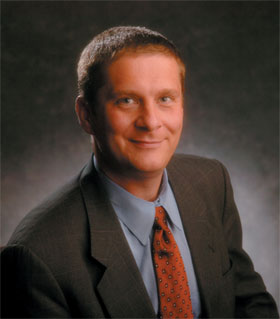
Timothy J. Broderick, F.A.C.S., is Professor of Surgery and Biomedical Engineering at the University of Cincinnati, where he has served on the faculty since 2003. He also serves as Chief of the Division of Gastrointestinal and Endocrine Surgery and is Director of the Advanced Center for Telemedicine and Surgical Innovation (ACTSI). He has flown on the NASA KC-135 parabolic laboratory and dived in the NASA Extreme Environment Mission Operations (NEEMO) program to develop advanced surgical technologies for long duration space flight.
















